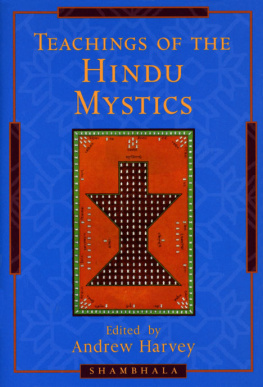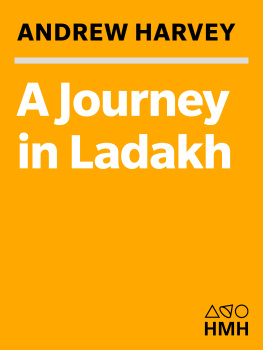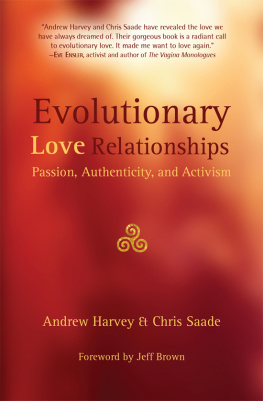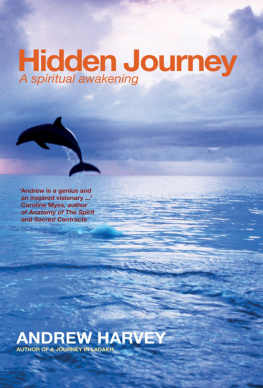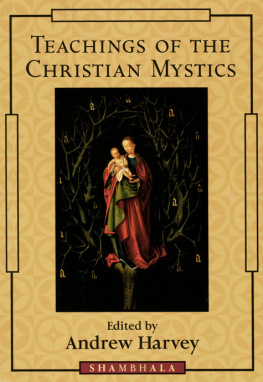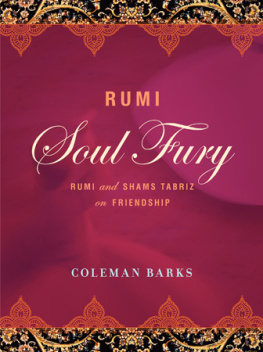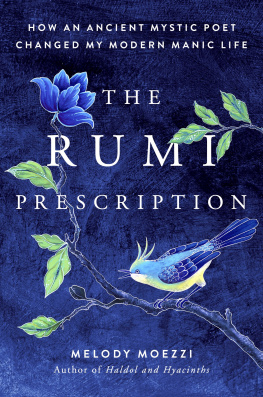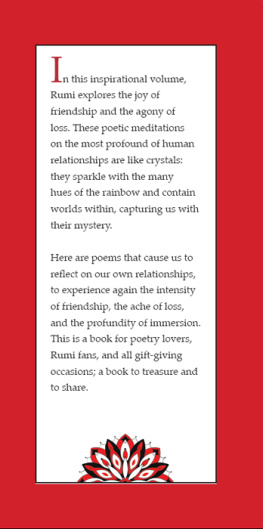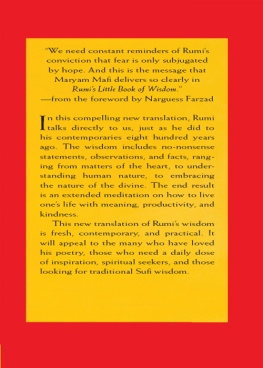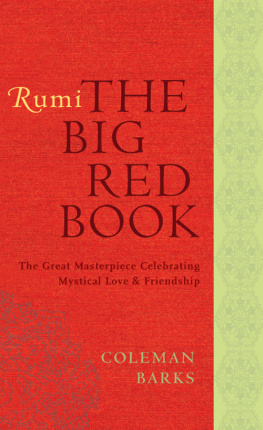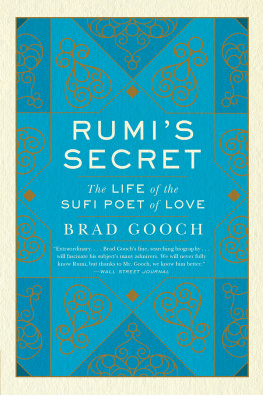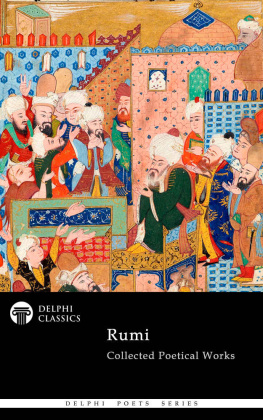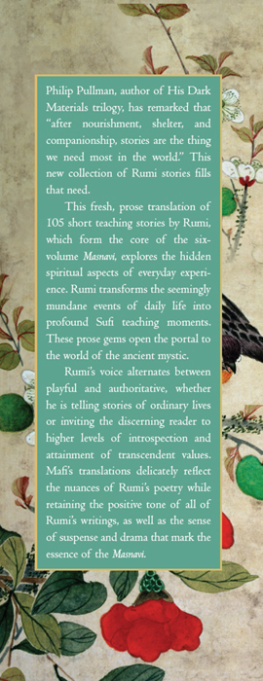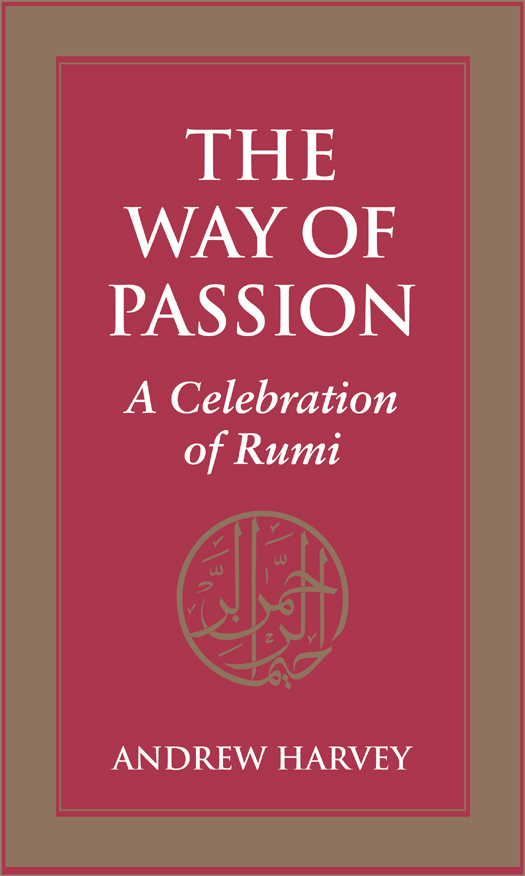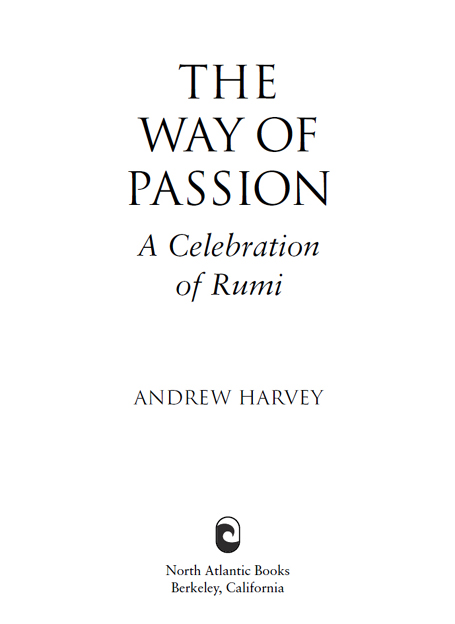Copyright 1994 by Andrew Harvey. All rights reserved. No portion of this book, except for brief review, may be reproduced, stored in a retrieval system, or transmitted in any form or by any meanselectronic, mechanical, photocopying, recording, or otherwisewithout the written permission of the publisher. For information contact North Atlantic Books.
Published by
North Atlantic Books
P.O. Box 12327
Berkeley, California 94712
Half-title page art by Cecil Collins
Cover and book design by Paula Morrison
Typeset by Catherine Campaigne
The Way of Passion is sponsored by the Society for the Study of Native Arts and Sciences, a nonprofit educational corporation whose goals are to develop an educational and cross-cultural perspective linking various scientific, social, and artistic fields; to nurture a holistic view of arts, sciences, humanities, and healing; and to publish and distribute literature on the relationship of mind, body, and nature.
North Atlantic Books publications are available through most bookstores. For further information, visit our website at www.northatlanticbooks.com or call 800-733-3000.
The four-line poems in this book are from Loves Fire and Speaking Flame, published by Christine Cox, Meeramma Publications, 26 Spruce Lane, Ithaca, NY 14850; (607) 257-1715.
The poems on are from A Garden Beyond Paradise: The Mystical Poetry of Rumi (Bantam Books, 1992), edited by Shahram Shiva and Jonathan Star. Used with permission.
Cover calligraphy, The Compassionate, The Merciful, by Jalil Rassouli, from the book Sufi: Expressions of the Mystic Quest, used by permission of Laleh Bakhtier.
The Library of Congress has cataloged the original print edition as follows:
Harvey, Andrew,
The way of passion : a celebration of Rumi / Andrew Harvey.
p. cm.
eISBN: 978-1-58394-812-5
1. Jalal al-Din Rumi, Maulana, 12071273Religion. I. Jalal al-Din Rumi, Maulana, 12071273. Selections. English. 1994.
II. Title.
BP189.7.M42H37 1994
891.5511dc20
9348302
v3.1
For Shams-i-Tabriz
The Sun of the face of Shams-ud-Din, the Glory of Tabriz, has never shone on anything mortal without making it eternal.
Rumi
Acknowledgments
My deepest thanks to:
Chief Editor Muriel Maufroy and Assistant Editors Marianne Dresser, Kathy Glass, and Jeannie Trizzino.
The California Institute of Integral Studies and especially President Robert McDermott, for his generosity and wisdom.
Anne Teich for all her patience.
Rina Sircar for the quiet flame of her truth.
All my pupils who gave me permission.
Bokara Legendre whose kindness, vision, and hospitality made all of this possible.
Richard Grossinger who believed.
My thanks to Jonathan Star for his exquisite translations and to Norman O. Brown.
My deepest gratitude to Faustin Bray and Brian Wallace for having the courage to tape the original talks and make them available.
Thanks to Christine Cox for allowing me to reprint excerpts from Loves Fire and Speaking Flame.
Contents
Preface
Loves Glory, Rumi wrote, is not a small thing. The lectures I gave in San Francisco at the California Institute of Integral Studies in April, May, and June 1993 were intended as a Sufi celebration in and for this time of Loves Glory, and of the wonder of the supreme mystic poet and prophet that Rumi was and is. Each lecture was a dance, a dance of mirrors, in which essential spiritual themes returned to be reflected in different constellations and harmonies, a dance around Rumi and that mystery of Love he lived and expressed so completely. Before I left my home in Paris to give the lectures in San Francisco, I had a dream in which I found myself asking an old man, sitting in a sunlit empty mosque, How should I talk of Rumi in modern America? He smiled and said, Be passionate and precise, drunken and perfectly sober. I tried as hard as I knew how to honor his advice.
This book arises as its own dance out of the dance of those lectures. Naturally I have honed and shaped and added here and there, but I have fought hard to preserve the flow, the passion, the wildness, the sudden naked truth that happened last spring in Rumis Presence and, I believe, with his blessing. Each chapter mirrors the others but dances in its own way. Read slowly, dance wildly.
May the blessing and the Presence of the Eternal Beloved inspire always all who come to this book with Love.
Loves Apocalypse, Loves Glory
One breath from the breath of the lover would be enough to burn away the world,
To scatter this insignificant universe like grains of sand.
The whole of the cosmos would become a Sea,
And sacred terror rubble this Sea to nothing.
No human being would remain, and no creature:
A smoke would come from heaven: there would be no more man or angel:
Out of this smoke, flame would suddenly flash-out across heaven.
That second, the sky would split apart and neither space nor existence remain.
Vast groans would rise up out of the breast of the universe, groans mingled with desolate moaning,
And fire eat up water, and water eat up fire:
The waves of the Sea of the Void would drown in their flood the horseman of day and night:
The sun itself fades, vanishes, before this flaming-out of the soul of man.
Do not ask anyone who is not intimate with the secrets
When the intimate of the secret himself cannot answer you.
Mars will lose its swagger, Jupiter burn the book of the world,
The moon will not hold its empire, its joy will be smirched with agony,
Mercury will shipwreck in mud, Saturn burn itself to death;
Venus, singer of heaven, play no longer her songs of joy.
The rainbow will flee, and the cup, and the wine,
There will be no more happiness or rapture, no more wound or cure,
Water will no longer dance with light, wind no longer sweep the ground,
Gardens no longer abandon themselves to laughter, Aprils clouds no longer scatter their dew.
There will be no more grief, no more consolation, no more enemy or witness,
No more flute or song, or lute or mode, no more high or low pitch.
Causes will faint away: the cupbearer will serve himself,
The soul will recite, O my Lord most high: the heart will cry it out, My Lord knows best.
Rise up! The painter of Eternity has set to work one more time
To trace miraculous figures on the crazy curtain of the world.
God has lit a fire to burn the heart of the universe,
The Sun of God has the East for a heart: the splendor of that East
Irradiates at all moments the son of Adam, Jesus, son of Mary.
Chapter One
The Journey to Love
W HEN THE GREAT Sufi mystic Master and poet, Jalal-ud-Din Rumi, died at sunset in Konya, southern Turkey, on December 17th, 1273, at the age of sixty-six, he had lived for almost thirty years in the radiance of enlightenment. He had composed 3,500 odes, 2,000 quatrains, a massive spiritual epic called the Mathnawi, and founded the Mevlevi order that, under his son Sultan Walad and his successors, was to spread the glory of his work and sacred vision throughout the whole vast extent of the Islamic world, from Tangiers to Cairo, Lahore, and Sarajevo, into the humblest, most remote villages of Afghanistan, Turkey, Iran, and India. Through all the centuries since his death and all the vicissitudes and tragedies of Moslem history, his odes have been chanted by crowds on pilgrimages and sung with the highest reverence in religious assemblies. Orientalists acknowledge Rumi as the greatest of all mystic poets, and Easterners worship his work as second in grandeur, depth, mystery, and holiness only to the


